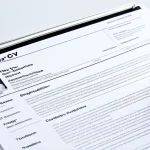Essential First Steps for UK Legal Compliance
Starting a business in the UK begins with proper company registration tailored to your chosen structure: sole trader, partnership, or limited company. Each carries distinct responsibilities and registration processes that must be understood fully. For example, sole traders register primarily with HMRC, while limited companies require inclusion on Companies House.
Mandatory registrations include notifying HMRC registration to handle tax matters and, for limited companies, filing with Companies House to establish legal existence. Early compliance helps prevent issues, so it’s crucial to complete these registrations promptly.
Also to discover : How Does the Legal Environment Impact UK Small Businesses?
To ensure smooth business setup, following an initial compliance checklist is invaluable. This checklist should confirm:
- Your business structure is legally registered
- HMRC and Companies House records are up to date
- Any necessary licenses or permits are underway (if applicable)
Meeting these legal obligations for new businesses is foundational to operating correctly from day one. These steps safeguard your business against legal pitfalls while ensuring eligibility for tax benefits and statutory protections. Proper legal compliance sets a robust platform, allowing your business to focus on growth rather than regulatory issues.
Also read : What role does corporate governance play in UK business legal compliance?
Meeting Taxation Requirements
Navigating UK business tax is crucial for new businesses to avoid penalties. The main tax obligations include income tax for sole traders, corporation tax for limited companies, and National Insurance Contributions (NICs) for employers and the self-employed. Early understanding of these responsibilities is essential to maintain compliance.
When must you register for VAT? VAT registration is mandatory once your taxable turnover exceeds a set threshold within 12 months—currently £85,000. Registering promptly ensures you meet VAT requirements, such as charging VAT on sales and reclaiming VAT on purchases.
Keeping thorough financial records is equally important. HMRC requires new businesses to maintain accurate books for all income, expenses, and payroll details. Meeting filing deadlines—typically annually for tax returns and monthly or quarterly for VAT—reduces risks of fines and audits.
HMRC guidance emphasizes registering for tax registrations early to stay ahead of deadlines. This foresight supports smooth business operations and helps you avoid costly compliance pitfalls. Understanding and fulfilling these tax obligations strengthens your business’s legal foundation from the start.
Securing the Right Licenses and Permits
Choosing the correct business licenses UK depends entirely on your business type and sector. Some industries, like food service or retail, require specific permits beyond basic company registration and HMRC processes. For example, running a café demands food hygiene certificates and possibly alcohol licenses, while online retailers might need data protection compliance certificates.
How do you identify necessary permits? Start by consulting local authority regulations because they issue many mandatory permits tailored to region and sector. Additionally, official government resources clarify which licenses apply to your plans, helping ensure full compliance.
Sector-specific compliance often covers safety standards, health regulations, and operational conditions. Failing to obtain appropriate business licenses UK can halt your business or lead to costly fines. Therefore, incorporating a thorough review of licenses and permits into your business setup checklist is essential.
In summary, a careful approach to securing licenses and permits safeguards your venture against legal obstacles, enables smooth operations, and aligns your business with both local authority regulations and industry requirements.
Securing the Right Licenses and Permits
When starting your business setup, securing the appropriate business licenses UK is critical to meet legal obligations for new businesses. Identifying the correct licences and permits depends largely on your industry and business activities. For example, food businesses must follow stringent sector-specific compliance like health inspections, while retail or online operations might require separate permissions.
Local authority regulations vary, so knowing which local council or regulatory body governs your area is essential. These bodies provide guidance on which permits are compulsory and outline application procedures. Obtaining these licenses early prevents costly interruptions to your business operations and ensures adherence to statutory requirements.
Complying with all relevant permits involves thorough research and timely applications—delays can result in fines or suspension of activities. Business owners should also maintain documentation of obtained licenses as part of their compliance checklist for legal business operation.
To summarise: understanding and fulfilling licensing requirements is a foundational step within your overall company registration and HMRC registration processes. Securing the right permits safeguards your enterprise against regulatory penalties and builds credibility with customers and suppliers.
Essential First Steps for UK Legal Compliance
Registering your business starts with choosing the correct legal structure: sole trader, partnership, or limited company. Each structure determines your registration needs and legal responsibilities. Sole traders must complete HMRC registration to manage tax obligations, while limited companies require registration with Companies House to become legally incorporated. Partnerships generally need both HMRC notification and may also register with Companies House depending on their type.
Mandatory registrations are critical as they establish your business’s legal identity and ensure tax compliance. Missing these steps can lead to penalties or delays in trading. An initial compliance checklist is vital; it should confirm your company registration is complete, HMRC records are up to date, and that any necessary licenses or permits are being pursued.
Ensuring these legal obligations for new businesses are met early provides a strong foundation. It protects your business and facilitates smooth dealings with HMRC and other authorities. This foundational compliance supports your business setup by mitigating risks and paving the way for future growth.
Essential First Steps for UK Legal Compliance
Choosing the correct business structure is the foundation of your company registration process. If you select a sole trader model, you must complete HMRC registration to ensure your income tax and National Insurance contributions are properly managed. Partnerships require HMRC notification as well, but some types must register with Companies House, particularly limited liability partnerships. For limited companies, registration with Companies House is mandatory to establish your business as a legal entity.
The next critical step is fulfilling all legal obligations for new businesses by submitting the necessary paperwork promptly. Failure to register on time can lead to financial penalties or delays in trading.
To guide this, an initial compliance checklist should confirm:
- Your business structure is properly registered with the right authorities
- HMRC and Companies House have your updated details
- Essential licenses or permits relevant to your sector are being applied for
Completing these steps ensures your business is legally compliant from the outset. This approach minimizes early risks and lays a solid groundwork for smooth business setup and future operations.
Essential First Steps for UK Legal Compliance
Registering your business begins with selecting the appropriate legal structure—sole trader, partnership, or limited company—as each determines distinct legal obligations for new businesses. Sole traders primarily complete HMRC registration to meet tax responsibilities, whereas limited companies must register with Companies House to become legally incorporated entities. Partnerships often require both HMRC notification and, depending on their type, registration at Companies House.
Mandatory registrations form the backbone of your business setup, establishing legal identity and ensuring compliance with tax and regulatory authorities. Failure to register correctly risks penalties or trading delays. An initial compliance checklist is essential to confirm:
- Your chosen business structure is properly registered
- HMRC registration is complete and accurate
- Any required licenses or permits are being secured
Adhering to this structured approach early safeguards your operations and allows your business to function within legal requirements. Efficient company registration combined with correct HMRC registration paves the way for tax compliance and fulfills fundamental regulatory conditions critical to a successful startup phase.








